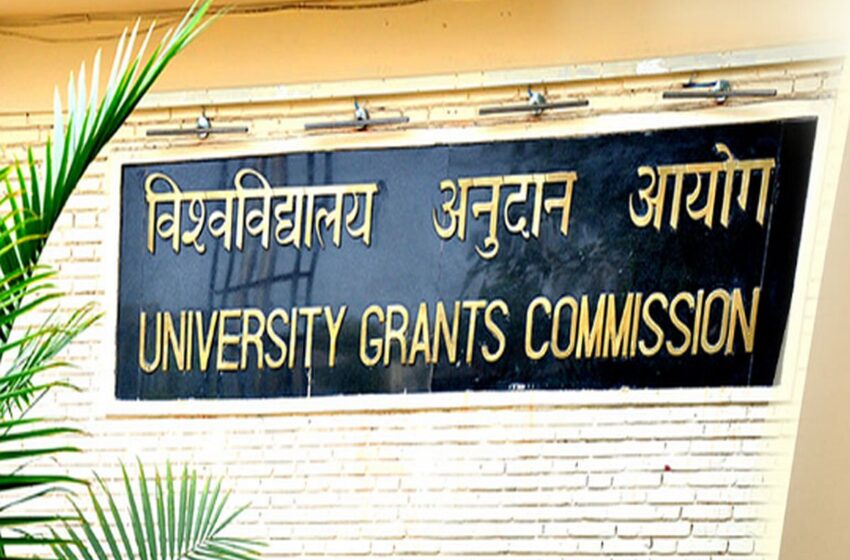
‘Different yardsticks required’: UGC opposes PIL in Delhi HC against CLAT-based admission to law courses
New Delhi, Sep 12 (IANS) The University Grants Commission (UGC) on Tuesday told the Delhi High Court that the five-year law course is a professional degree programme which may require different criteria to grant admission to students.
A division bench of Chief Justice Satish Chandra Sharma and Justice Sanjeev Narula was dealing with a plea filed by law student Prince Singh from the Delhi University (DU)’s Law Faculty against its newly-introduced five-year integrated law courses based entirely on Common Law Admission Test (CLAT) 2023 result, and demanding the implementation of Common University Entrance Test (CUET) scores for admission.
The UGC filed a counter affidavit in the matter wherein it has sought dismissal of the petition.
“It may be pertinent to mention here that Five-Year Integrated Law programme is a professional degree programme, and different yardsticks in terms of assessment/evaluation may be required to select students for admission in this professional degree programme. In view of the aforesaid facts and circumstances, it is most humbly prayed that this instant petition may be dismissed by this Hon’ble Court,” it said.
The UGC has said that the DU, with the approval of its Academic Council and Executive Council, has resolved to admit students through CLAT.
Even the Centre opposed the plea, saying the admission standards for professional courses like engineering, medicine, law etc are shaped by their specialised nature and specific skill and so are needed to be guided by the distinct prerequisites of each course.
“While there are overarching policy guidelines, universities retain the flexibility through their competent bodies i.e. Academic Councils and Executive Councils to tailor these guidelines to suit the unique demands of such professional courses,” the Centre said in its reply.
“The National Education Policy (2020) also envisions governance of Higher Education lnstitutions by highly qualified independent Boards having academic and administrative autonomy…the relief as sought by the petitioner to quash the admission notice of University of Delhi may not be granted,” it said.
On August 28, the Centre had informed the high court that for Central universities, the CUET is not compulsory, and they enjoy autonomy in the matter of admission.
However, the UGC had taken a different stand and submitted that it is mandatory for all the Central Universities to adhere to the CUET score for admission to UG or PG courses.
The court had then granted a weeks’ time to the UGC as well as the Centre to file a detailed counter-affidavit in the matter. It had also asked the DU to file a supplementary counter-affidavit in case it wants to.
The UGC has mandated CUET for Central universities’ undergraduate admissions, while the DU has chosen to use CLAT scores for its law courses.
On August 17, the court had told the DU that when CUET score is being considered to grant admissions by other Central Universities, it is not “special” to make admissions based entirely on CLAT 2023 result.
The bench had orally said: “Under the National Education Policy, once the decision is taken by the Government of India, Ministry of Education that admissions are to be done in Central Universities only on the basis of CUET, then you are not special.”
It had granted time to the DU to file the counter affidavit in the matter, and also asked the Centre to file its reply or seek appropriate instructions in the matter. It had made it clear that if no counter-affidavit is filed by the next date of hearing, the matter will be heard finally on interim relief.
The DU’s counsel had submitted that till the next date of hearing, the university will not release any advertisement inviting applications for admissions in the five-year law courses.
The PIL argues that this creates a separate category of students eligible for admission. Additionally, CUET’s inclusivity in terms of languages is highlighted, as opposed to CLAT’s English-only format.
The plea states that the CLAT exam has been conducted in English medium since its inception. However, the CUET (UG) exam is being conducted in 13 languages — English, Hindi, Assamese, Bengali, Gujarati, Kannada, Malayalam, Marathi, Odia, Punjabi, Tamil, Telugu, and Urdu.
“It is worth noting here that the CUET is more inclusive, more diverse and in tune with the mandate of the National Educational Policy. It is not out of the place to mention here that the Respondent No. 1 uses two languages, i.e., English and Hindi in its teachings and semester exams,” the plea says.
The introduction of these law courses at DU had been in demand for a long, with the Bar Council of India (BCI) granting approval for 60 seats each in the BA.LL.B. (Hons) and BBA.LL.B. (Hons.) programmes. The university has said that sessions for both courses are scheduled at the Faculty of Law, Kanad Bhawan, in the North Campus.
